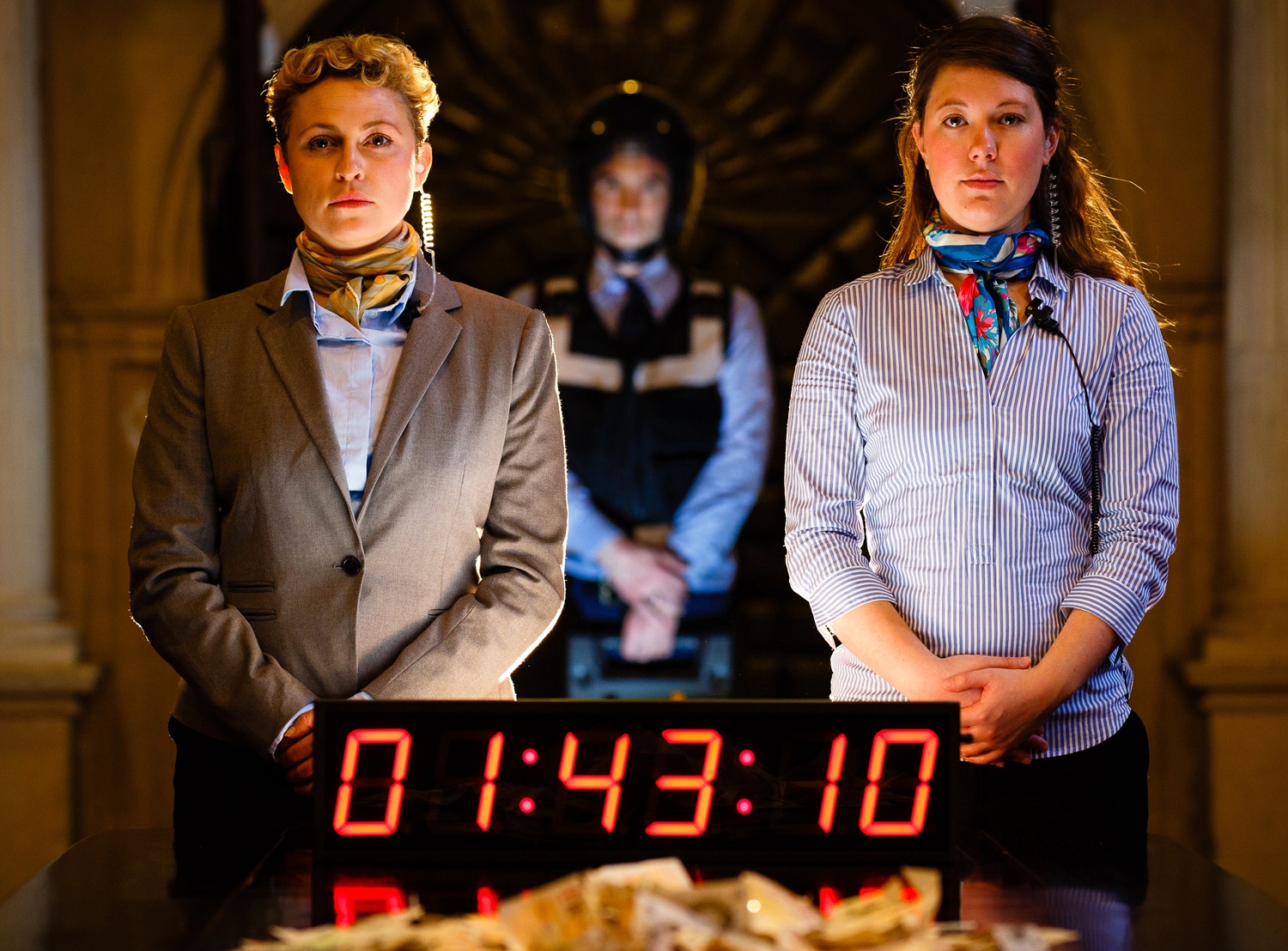“What’s good about it is because you have a different cast, essentially, every time, it stays compelling for a very long time,” says creator Seth Honnor. “Unlike a lot of shows – which once you’ve seen them, you’ve seen them – people come back and back to this one and they buy tickets for the spouses for Christmas. It’s weirdly addictive, because even though you’ve seen one you go, ‘What’s the next one going to be like? Will they do the same thing? Will they come up with something different?’ ”
People are required to pay extra if they want to be involved in the fiscal negotiations that form the crux of the show. They then become known as “benefactors”, while the rest of the audience watch on as “silent witnesses”. It’s not uncommon for tense power struggles to emerge in The Money, which could incite comparisons to competitive gambling. Of course, its conceptual intentions – to explicate the complicated issues faced in money-centric societies, and how important communication for the instantiation of utilitarian principles – distinguish it from gambling, but Honnor makes sure to underline the rules so that people don’t feel cheated or ripped off.
“We’re extremely careful around our duty of care to the players,” he says. “So we say, ‘this is a choice. You choose to be a benefactor or a silent witness. It’s your choice.’ And we say, ‘Benefactors have an amount of time to come to a unanimous decision about how to spend some money, and the silent witnesses watch and they can buy in at any time.’ So everyone knows the deal before they go in.”
There are some necessary formalities to take care of before a performance of The Money can commence. Though, these are fairly uncomplicated.
“It’s just ticketed. We don’t cast it at all,” Honnor says. “The general public choose to be a benefactor or a silent witness and that’s it. So we just sell it like you would sell a stalls ticket or a dress circle ticket to a theatre show.”
During the course of the game, Honnor doesn’t play an active role (besides watching on as a silent witness), but there are two actors who interact with the benefactors and play a crucial role in proceedings.
“They are performers and they have a script,” Honnor says. “So the way they hold the audience as they move them into the space is very carefully choreographed. Every single detail in this show is considered, even if it looks like it isn’t.
“It’s a bit like a magic trick in that there’s a membrane that’s designed that is sort of invisible but holds the whole experience very carefully.”
Most people are inclined to put on some sort of performance whenever they get on a stage. You’d imagine this could stall the progress of a game of The Money, but Honnor says it’s hardly ever an issue.
“The Money reveals our ability to work with each other, or not, really quickly. It’s a really hopeful show, though. I’m always amazed at how incredibly supportive people are of each other. I always love it when someone buys in and says, ‘I want half the money, I’ll only agree if I get half the money.’ I always love it when people game it, and people who get used to it and play it more learn that it is a game and it’s OK to play it. We’re always keen for people to be playful with it because it makes it really interesting, because you’re not quite sure what it is you’re watching.
“I think people really want to get along. We think we live in quite a fragmented world where people are kind of selfish and self-interested. But actually that’s not what you get in The Money, generally speaking.”
Tense, heavy emotions are often at the core of captivating works of theatre, and it’s not uncommon for complications and differences of opinion to surface in The Money. However, there is potential for a show to be characterised by good humour, modesty and sensible judgements, and still be entertaining.
“The thing about The Money is that whatever happens in it, it gets under your skin and it stays there. When I first made it, I would wake up in the morning the next day and go, ‘I’m sorry everyone.’ Then I realised that everyone who saw it, the next morning it would be the first thing that they woke up and thought about. It is an extraordinarily intense experience. Someone once came up to me from Arts Council of England and she said, ‘It’s like watching Shakespeare.’ It’s totally unbelievable how it twists and turns and moves, how it’s got five acts, how we naturally fall into those rhythms of five acts, and how the narrative rises and falls.”
BY AUGUSTUS WELBY







